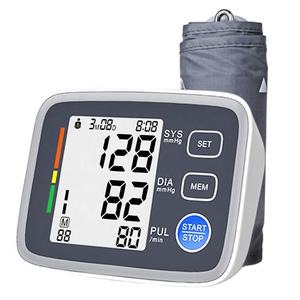Introduction to BP Measurement Devices
Blood pressure measurement devices, commonly referred to as BP measurement devices, are essential tools for monitoring an individual's cardiovascular health. They are designed to provide accurate readings of blood pressure levels, helping both healthcare professionals and individuals in managing health conditions such as hypertension and other cardiovascular diseases. With advancements in technology, these devices come in various forms and functionalities, catering to diverse needs and preferences.
Types of BP Measurement Devices
There are several types of BP measurement devices available in the market, each serving different purposes. Understanding these types can help you choose the one that best fits your needs:
- Manual Sphygmomanometers: Often used in clinical settings, these devices require a stethoscope for accurate reading and involve a cuff inflated by hand.
- Digital Blood Pressure Monitors: These automatic devices provide easy-to-read digital displays and are user-friendly, making them ideal for home use.
- Auscultatory Devices: This traditional method involves placing a cuff around the arm and using a stethoscope to listen for arterial sounds.
- Wearable BP Monitors: With the rise of technology, these portable devices allow continuous monitoring throughout the day, providing real-time data.
Function, Feature, and Design of BP Measurement Devices
BP measurement devices are designed with several core functions and features that enhance their usability and accuracy:
- Accurate Readings: These devices utilize advanced sensors and technologies to ensure precise blood pressure readings.
- User-Friendly Interfaces: Many digital monitors come with LCD screens and intuitive menus, making them easy for anyone to operate.
- Memory Storage: Some models feature built-in memory to store previous readings, allowing users to track changes over time.
- Adjustable Cuffs: Various cuff sizes are available to accommodate different arm sizes, ensuring accurate measurements.
- Bluetooth Connectivity: Many modern devices can sync with smartphones or healthcare apps for easy tracking and sharing of blood pressure data.
Applications of BP Measurement Devices
The applications of BP measurement devices are vast and essential for maintaining optimal health. These devices are utilized in:
- Home Monitoring: Ideal for patients managing chronic conditions, allowing them to keep regular tabs on their blood pressure levels.
- Clinical Settings: Doctors and nurses use these devices to assess patients' cardiovascular status during check-ups and screenings.
- Sports and Fitness: Athletes can monitor their blood pressure as part of overall health management during training and recovery.
- Research and Studies: BP measurement devices are crucial for clinical trials and health studies that require accurate blood pressure data.
Advantages of BP Measurement Devices
The benefits of using BP measurement devices extend beyond just measuring blood pressure. Key advantages include:
- Early Detection: Regular monitoring can aid in the early detection of hypertension, enabling timely intervention.
- Convenience: Home-use devices offer the flexibility to measure blood pressure at any time and in any place.
- Cost-Effective: Investing in a BP measurement device can save money spent on frequent doctor visits for monitoring.
- Empowerment in Health Management: Having access to personal health data empowers individuals to take charge of their health and well-being.
















































